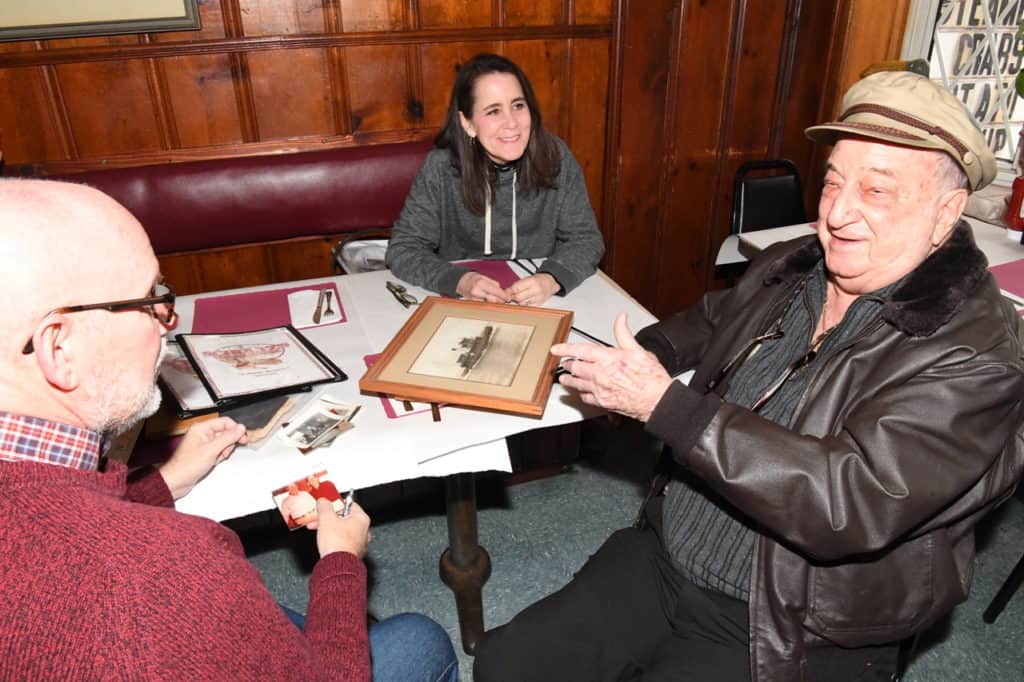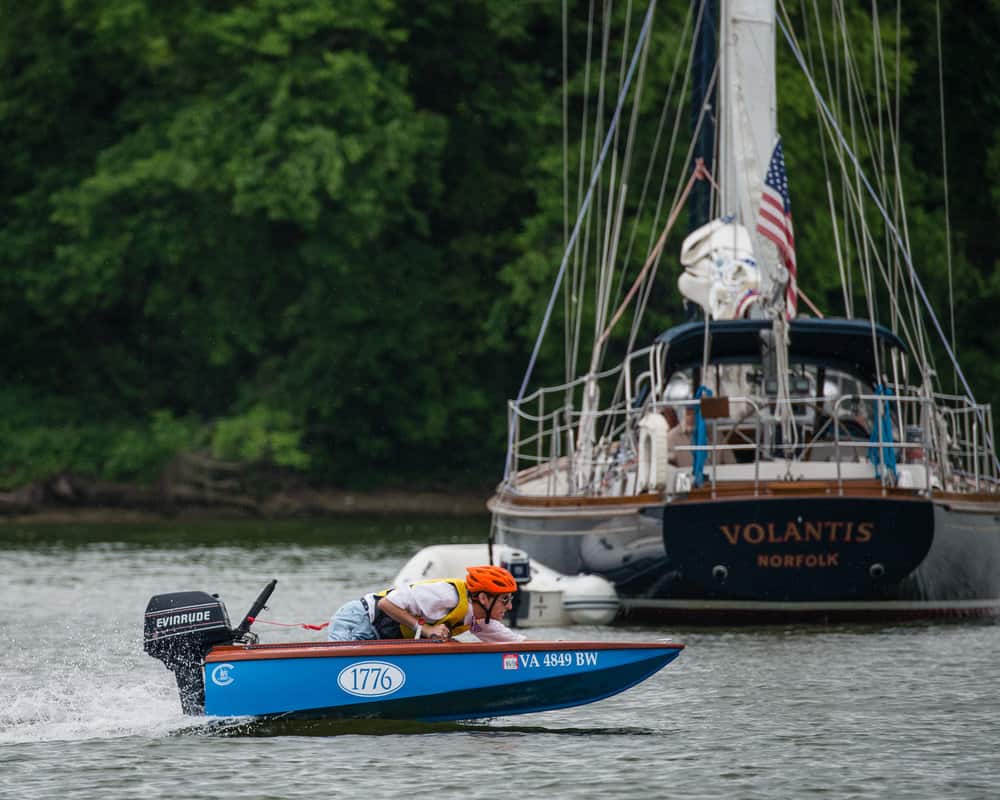Bill Bobac looks back on the tug life on the Baltimore waterfront
Back in ’56, when the Port of Baltimore was booming and jobs were plentiful, Bill Bobac worked his family’s waterfront gin mill at Pratt and Light, a place called Vann’s catercorner from the infamous Elmer’s Musical Bar. One day, a tugboat man walked in and asked if he could cash a check. Bobac agreed.
The next week, the same guy—an engineer on boats owned by the Arundel Corporation—returned with his paycheck and had a few.
“Those guys could get pretty lit up, and that’s putting it mildly,” said Bobac, a used-to-be tough guy from Steubenville, Ohio who aged into an affable, quick-to-laugh cream-puff after years of running with men who had names ripped from pot-boilers: “Skinny” Keller, Marion “Mugsy” Mugavero, a Polish guy named “Dutchie,” and Georgie “Bullets.”
Bobac gave the man his wages (taking a small cut for the courtesy) and it occurred to him that the boatman was making more docking ships and pulling barges than he did serving ‘em up from dawn to dusk.
“I asked if they were hiring and he said to go down to the pier on such-and-such a day and speak to so-and-so,” recalled Bobac, sharp of memory at 97. “They needed an oiler on the [tug] Choptank.”
Over in Fairfield, where the Arundel tugs tied up near Maryland Drydock, Bobac dropped the name of the guy who’d given him the hot tip and was hired on the spot.
“My first day in the engine room, the chief told me to oil a piece of equipment,” said Bobac, who’d never been aboard a tug before. “I told him I didn’t know what to do. He said, ‘I thought you worked down below before.’”
To which Bobac replied, “No sir, I’m a bartender.”
The engineer threw up his hands, muttered a few choice words and kept Bobac on with strong encouragement to join the deck department. Thus were seafaring careers launched in the days before the most casual scrutiny.
Bobac picked up the fundamentals of the engine room—some of the technology hearkened to the First World War—and moved to the deck department. Over the next 30 years, he handled lines on the Patapsco River, the Chesapeake Bay and at sea with long runs to India, the Far East, and South Africa.
Bobac’s time with Arundel, during which he saw a deckhand put ashore during an electrical storm near Matapeake for daring Christ to strike him dead by lightning, lasted until 1962, when he shipped out deep sea as a galley messman in the days when both officers and crew on U.S. flagged ships were served their meals.
Like many local tugboat men who came of age during World War II (Bobac served with the Army in the Pacific), he retired from the Baker-Whiteley towing company in 1984 when management busted union contracts that had governed tug labor in Baltimore since the mid-1950s.
“My first boat with Baker-Whiteley was working as a fireman and water tender on a steam tug called the Britannia,” said Bobac, who has an oil painting of the coal-fired vessel (built at Sparrows Point in 1899) in his Essex apartment, a small museum of all things baseball, Roman Catholic, and seafaring.
Along with a liquor decanter in the shape of Brooksie (“the human vacuum cleaner” at third on 33rd) and framed photos of the old B-W fleet tied up at the City Recreation Pier—the Holland, the Scandinavia, and the America among them—all with white dots on dark red stacks, he displays what was once ubiquitous in Crabtown, especially along the heavily Catholic waterfront, and now seldom seen.
“When St. Patrick’s school closed down on Broadway [at Regester Street], I bought some of those big rosaries the nuns used to wrap around themselves,” he said, a flea market maven who still gets around pretty well with a walker, his daughter Betty Jo Shifflett, and the help of friends with automobiles.
A favorite outing is just around the corner from his home at Schultz’s Crab House on Old Eastern Avenue for a nice, hot, roast beef with mashed potatoes. “Make sure it’s hot,” he tells the waitress every time.
Baker-Whiteley was established on South Clinton Street in industrial Canton in 1876 as a coal company with mines in Pennsylvania. It is long gone, like the Britannia and the firm’s last moorings at the Recreation Pier, a dormant municipal property which in 2017 opened as a luxury hotel, the rooms costing more per night than a vintage tugboat man made in a month.
Coming aboard the Baker-Whiteley tugs in 1964, Bobac befriended a crew of unforgettable characters that included my father.
Among them was Simone Garayoa, a veteran of the Spanish Civil War (loyal to the Republic) who owned a bar next to Jimmy’s Diner on South Broadway with his wife, Agnes Karcz. If Simone didn’t know you, he wouldn’t unlock the door. Also, Jerome “Romey” Lukowski, a first mate born and raised at 1718 Thames Street in the “Seaman’s Cafe,” his mother’s boarding house. Romey was known to drink his fill at the Cat’s Eye late Saturday night and make it to Mass around the corner at St. Stanislaus the next morning. And Bobac’s best buddy, William H. Miller (the H stood for “Hollingsworth” but we called him “Mister Bill”), who hosted decades of summer cookouts and card parties at his shore home near Sparrows Point High School and, between work shifts, could be seen leaning on the mailbox at Thames and Ann Streets with other men who quenched mighty thirsts at a fabled tavern called Zeppie’s.
“That mailbox,” said Bobac, “had everybody’s elbows on it at one time or another.”
Today, no seafarers hang on that mailbox; still there in front of the Penny Black, which had been the John Stevens, which had been Zeppie’s, which had been the Five Point Tavern, which had been …who knows just what in an age when St. Stanislaus is a yoga studio.
All but Bobac and my father—Manuel, a retired chief engineer, now 85—have made their final departures. According to Seafarers International Union officials, Bobac is at or near the top of their most senior pensioners and easily the oldest tugboat man in Baltimore.
Born near the end of the Harding Administration, he gives a rueful chuckle and says, “I’m just about the only one left…”




